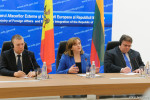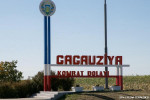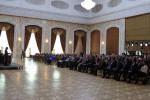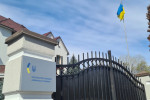
All the parties with weight in the Autonomous Territorial Unit of Gagauzia played an important role in the process of organizing the referendums held on February 2, where the Gagauz people pronounced on the external development course of Moldova and voted for the region’s right to self-determination if Moldova loses its sovereignty, expert Veaceslav Berbeca says in the Social Bulletin “Causes and effects of referendums held in Gagauzia”, IPN reports.
The expert said the goal of the Communist Party was to strengthen its positions in this region before the national parliamentary elections and those for choosing the governor of the region. By their actions, the Communists wanted to show that the ruling parties are unable to control the political processes in Gagauzia. Furthermore, the PCRM hopes to cause a ‘domino’ effect all over Moldova, according to the Gagauz model, so as to weaken the position of the government coalition.
As to the Moldovan authorities, the author said they didn’t manage to work out a communication strategy by which to convince the residents of Gagauzia of the advantages of coming closer to the EU. As there is no accessible information about the European integration process in the Russian language, which prevails in the region, the Communists made use of the weaknesses of the central authorities and promoted an anti-European campaign. The overdue attempt of the Moldovan officials to have discussions with the officials from Comrat had the opposite effect as it was perceived as an attempt to exert pressure on the Gagauz people.
“If we leave aside the legal consequences of these referendums, we see that the Gagauz politicians, volence-nolence, managed to attract the attention of society and foreign partners to the situation in the region. Thus, no matter what goal the two plebiscites pursued, the subtle observers of the events understand that one of the basic conditions of the Gagauz leaders – the economic and financial situation in the region – will be taken into account by Chisinau and the donors in the future,” explained Veaceslav Berbeca.
The Social Bulletin is produced by the Institute for Development and Social Initiative “Viitorul” in partnership with Friedrich-Ebert-Stiftung .











